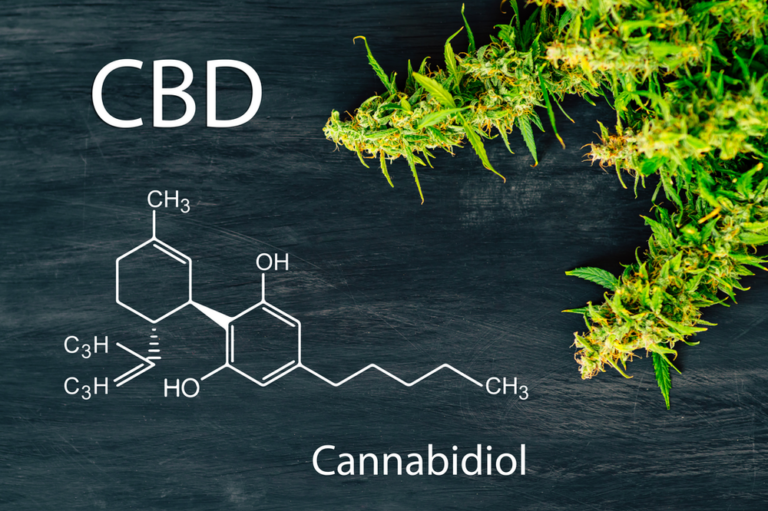What Hemp Legalization Really Means to CBD Food Retailers
With the Farm Bill having removed hemp, simply defined as Cannabis sativa L. and derivatives of cannabis with extremely low concentrations of THC [7 USC §1639o(1)], from the Controlled Substances Act, meaning that it is no longer an illegal substance under federal law, life became a bit simpler for retailers wishing to carry CBD products. … Or did it?
Federally, there are two sides to the story: an August DEA announcement confirmed that “hemp, including hemp plants and cannabidiol (CBD) preparations at or below the 0.3 percent delta-9 THC threshold, is not a controlled substance, and a DEA registration is not required to grow or research it,” – thus also making it legal to put CBD products through interstate commerce – from the DEA standpoint. On the other hand, an August FDA announcement stated that “not much” was changed at FDA by the Farm Bill, as “Congress explicitly preserved FDA’s authorities to regulate products containing cannabis or cannabis-derived compounds, regardless of whether they are classified as marijuana or hemp” – thus continuing its federal illegality in foods.
As if that weren’t enough, there are 50 varying sides among the states, and they run an even wider gamut than DEA vs. FDA. Even considering just states that have legalized cannabis to any extent, you have states such as California and Washington where marijuana edibles are legal but hemp-CBD is not approved as a food ingredient, except in marijuana products. As California states, “although California currently allows the manufacturing and sales of cannabis products (including edibles), the use of industrial hemp as the source of CBD to be added to food products is prohibited.” However, Washington conceded that hemp seed-derived ingredients can be used in food because they have received FDA GRAS approval – as we can expect from other states as well; but Washington then clarified that this does not include CBD.
At the other end of the spectrum are states such as Colorado which allows industrial hemp production and regulates “CBD derived from industrial hemp as either a food ingredient or as a nutritional supplement” – with no age restrictions on who can purchase, consume, dose or ingest these products. So the primary rule in Colorado is that the CBD be declared.
What does all this mean to the CBD food product retailer? It means that while you can legally purchase and ship hemp-derived CBD across state lines, you need to be sure you are purchasing ingredients from a reputable supplier. – You need to know the regulations of the state from which you are purchasing, know exactly what it is you are purchasing, and know your suppliers – all the way back to seed. Does the state from which you are purchasing have food safety requirements? Require testing? Facility licensing? Comprehensive labeling?
Whether a state from which you are purchasing, your own, or any state through which the product is transported, requires any of this or not, it behooves you to have a food safety supply chain program. While it is essential to protect your customers, it also is important to protect your business and reputation – e.g., to keep your name out of headlines such as Fake CBD Poisoned At Least 52 People In Utah which ran across major news outlets in 2018. Not only do such incidents impact the company carrying the product, they impact the entire cannabis industry. Take the caution of CDC in its reporting of the incident as just one example of this: “This investigation highlights the hazards of consuming unregulated products labeled as CBD. States could consider regulating products labeled as CBD and establishing surveillance systems for illness associated with products labeled as CBD to minimize the risk for recurrences of this emerging public health threat.” That is, if you aren’t sufficiently policing yourself, a federal or state agency won’t hesitate to do so, which may also include law enforcement.
So what should you assess in a CBD edibles supply chain program? Essentially, it should be conducted with the same due diligence as is expected, and required, of any food product supplier – with additional considerations due to the lack of federal regulations and state differences around edibles. Some of the key questions you should consider:
- Am I able to track the supply chain back to seed to ensure I am purchasing from a reputable source?
- What is my liability as a retailer should a product – or ingredient of the product – be determined to be inferior or unsafe or illegal?
- Are the food ingredients (e.g., chocolate) in the products I sell being manufactured in a food facility or CBD facility? If CBD, do they know and prevent food safety risks?
- Do my suppliers follow Good Manufacturing Practices (GMPs) in their facilities?
- Do my suppliers implement environmental monitoring and preventive controls?
Developing a supply chain program can be a complex and time-consuming undertaking, but it doesn’t have to be. HashTAG’s team of experts can help in this, and all food safety and cannabis regulatory areas. Give us a call today!
About HashTAG
Led by Dr. David Acheson, HashTAG is part of The Acheson Group (TAG), a food safety consulting group that provides guidance and expertise worldwide for companies throughout the food supply chain. With a focus on the Cannabis Edibles Industry, the HashTAG team brings in-depth industry knowledge combined with real-world experience to help companies more effectively mitigate risk, improve operational efficiencies, and ensure regulatory and standards compliance. To learn more about HashTAG services and expertise, please visit: www.HashTAG.global






